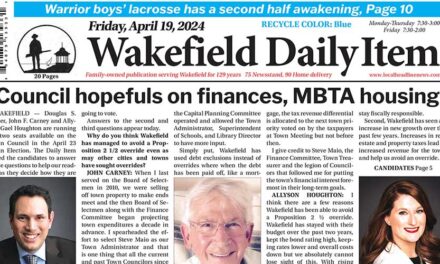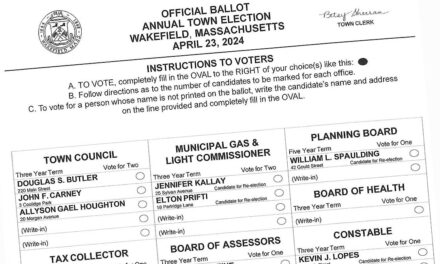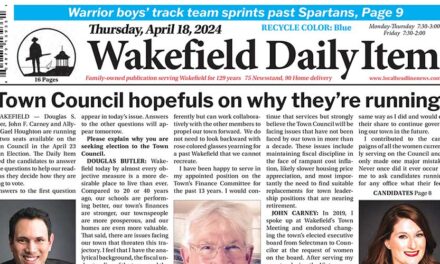By GAIL LOWE
WAKEFIELD — Town Counsel Thomas Mullen has some serious problems with high school booster clubs and their current relationship to coaches.
The School Committee this week hosted members of various booster clubs supporting athletics and other extracurricular activities as guidelines are examined and finalized. The School Committee now is expected to vote on those guidelines at its Feb. 11 meeting.
Mullen commented on the “serious risk of liability when Booster organizations purport to retain coaches as independent contractors.”
Mullen referred to Massachusetts General Law c.149,s.148B, which was substantially rewritten by the Legislature 10 years ago.
Under the law, it states that if a worker, such as a coach, were to contend that he had been misclassified as an independent contractor when he should properly have been classified as an employee, the burden would be on the employer to prove that all of the three prongs of the statute support independent contractor status.
The prongs are as follows:
• The individual performs his service free from control and direction from outside sources.
• The work of the individual is outside the usual course of business of the employer.
• The individual is customarily engaged in an independent trade or business of the same type as the services he performs.
Even if a Booster organization steered clear of controlling or directing coaches in their work, there would still be substantial risk under the second and third prongs, said Mullen.
“One court found that paperboys could not be characterized as independent contractors of a newspaper because the delivery of the papers was part and parcel of the newspaper business,” commented Mullen.
“I would worry that the provision of coaching services is equally integral to a Booster organization that exists chiefly to ensure that a team has coaches,” he continued. “Unless the coach offered his services on a freelance basis to multiple teams, I believer there also would be vulnerability on the third prong as well. If a court were to find the Booster organization an ‘employer,’ then the organization would be liable for payments into the unemployment and workers’ compensation systems and any dispute about payment would be decided under the Wage Act, General Laws c.194, ss.148 and 150, which calls for triple damages and attorneys’ fees for successful employee claims and which makes the president and treasurer of the employer organizations personally liable.”
Mullen also stated that if Booster organizations were deemed an employer, it might be vicariously liable for the torts of the coach, meaning that if a child were hurt on the field and the parents claimed it was the coach’s responsibility, the resulting lawsuit would be against both the coach and the organization. Boosters can avoid all this potential liability by simply donating the money they raise to the School Department and letting the department employ the coaches.
Mullen said that this also would be better for the coaches.
“As employees of the School Department, they would be entitled to workers’ compensation through the town, if injured, and would be protected against claims of negligence under the Massachusetts Tort Claims Act, General Laws c. 258,” said Mullen.
In closing, Mulled stated that it would be “better for the town to treat coaches as municipal employees. The School Department needs to have the unquestioned right to select, control, direct and discipline its coaches and could be liable to parents for exposing their children to coaches whom the department did not vet and does not control.
Also, for the same reasons mentioned, while a Booster organization might be deemed to be the “‘employer’ of misclassified coaches,” it is also possible that the School Department could be held their employer, with all the attendant risks of multiple damages and attorneys’ fees.




